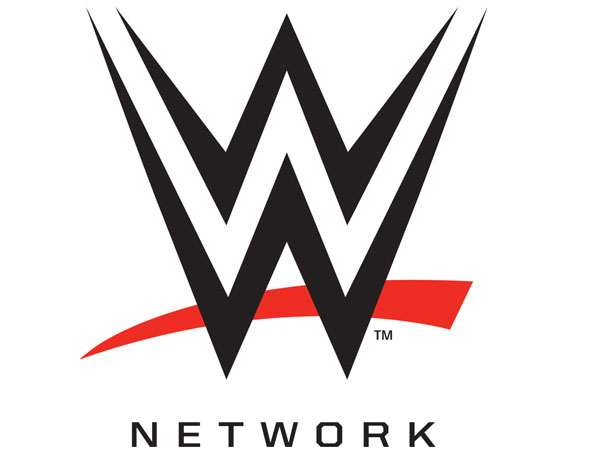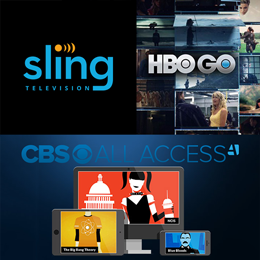WWE Network’s 1-Year Anniversary: A Conversation (Part 2)
 Continuing their conversation from earlier this week Cory Barker & Drew Zolides discuss the 1-year anniversary of the WWE Network and its future legacy.
Continuing their conversation from earlier this week Cory Barker & Drew Zolides discuss the 1-year anniversary of the WWE Network and its future legacy.
DREW: What do you make of the financial state of WWE? The Network’s introduction certainly led to an unstable 2014, so do you see these concerns as indicative of a rocky transition period that will right itself soon or are the effects more long-lasting?
CORY: Similar to our critiques of the company’s creative output, it appears that the Network has only exacerbated WWE’s scattershot business strategies. The Network was a long-gestating idea that was initially thought of (and promoted on TV as) a cable channel, but WWE also partnered with ION TV and the CW to add C-level Main Event and Saturday Morning Slam, let USA talk them into bumping Raw to three hours a week, and put NXT programming behind the Hulu paywall. For a company priming consumers for a one-stop-shop experience, WWE did an amazing job of spreading its content in as many random places as possible.
That’s just in the US. The initial Network offering in Canada outraged consumers, various issues kept the Network out of the UK for longer than expected, and then pre-existing contracts abroad forced Main Event off the Network in the states. To top it all off, WWE has given free monthly access to the Network multiple times over the year, just to reach that 1 million number you noted.
WWE promised to revolutionize its business model, but doesn’t seem to have a coherent strategy to accomplish that. Although the stock price has stabilized since the big drop early in the year, the company’s lingering issues seem to be mounting. Frustration with storylines (from both fans and talent) are piling on top of disappointment with the Network’s lack of original content, and you have to wonder if WWE is simply overextended itself. Growing pains are expected, is this something more? What do you think other networks or companies looking to go the standalone OTT service can learn from WWE?
DREW: We’ve been pretty hard on WWE, so I’ll start with a compliment: they produce a lot of content. Debate its quality all day long, but as you just proved the WWE produces several hours of cable television every week in addition to the programming on the Network (and that’s not counting output for home video and WWE Studios). The Network represents the company’s first big push into distribution, and if it teaches us anything it is that producing content and distributing it require entirely different business acumen that WWE is woefully lacking. In many ways WWE is taking the opposite path of companies like Netflix and Amazon, moving from production into distribution which is proving a much more difficult path than the reverse.
The result is burning bridges with their distribution partnerships. Introducing the Network meant pissing off cable/satellite providers like DirecTV over lost PPV revenue, settling for less on television renegotiation with USA, and cutting into the home video market. New OTT services can learn from this and shore up their existing partnerships in the process of building their own platforms. This won’t be a problem for most networks since they are already part of large media conglomerates (something Vince McMahon resents ever since fighting TimeWarner and WCW). For most OTT services, the Network’s troubles simply won’t be much of an issue due to conglomeration and deeper corporate partnerships.
I sometimes wonder if the WWE Network will become an odd media artifact—bizarrely prescient but ultimately forgotten. What do you see for the WWE Network’s future? What will be its legacy in Internet-delivered television?
 CORY: I’ve criticized WWE because I’m a frustrated viewer—but I’m still a viewer. I’ve watched something on the Network at least twice a week for a year. The problem is that we can imagine all the great things WWE could do with the platform that they haven’t done just yet. That utopian vision you mentioned hasn’t been fulfilled. If there are lessons that HBO, Sling, and anyone else can learn from WWE it’s to launch with a real plan and to modulate expectations.
CORY: I’ve criticized WWE because I’m a frustrated viewer—but I’m still a viewer. I’ve watched something on the Network at least twice a week for a year. The problem is that we can imagine all the great things WWE could do with the platform that they haven’t done just yet. That utopian vision you mentioned hasn’t been fulfilled. If there are lessons that HBO, Sling, and anyone else can learn from WWE it’s to launch with a real plan and to modulate expectations.
In the future, I suspect that the HBOs of the world get credit for the OTT revolution, not WWE. The Network will never appeal to general consumers in the way a TV network’s service can, and once major sports league full embrace cost-effective OTT distribution, WWE’s early move will be forgotten. It doesn’t even get enough attention now when it’s one of the only games in town. The harder question to answer is how the Network fits into WWE’s future. Do you see improvements coming sooner rather than later?
DREW: For all our negativity, WWE is actually looking pretty good a year-out from the Network’s launch. Subscriber numbers are still under comfortable profitability range but not by much, and their stock performance has rebounded after a disastrous summer. That means WWE will either rest on its laurels and not make improvements or will feel emboldened to double their efforts into Network viability. I’ll hedge my bets by saying I think the Network will improve but not enough for massive success. Ultimately the Network will avoid an XFL disaster (it has already lasted longer) and will be a mainstay for WWE, meaning the company will continue to invest time and money into its development. I still believe the Network was and is a positive move for WWE as long as they can remain viable in live sales and television deals. The Network will never uproot WWE’s core business practices, but it can certainly provide support.
WWE may never be the powerhouse pop culture phenomenon Vince McMahon desperately desires, but his willingness to take risks like the Network has made professional wrestling an exciting laboratory for television development—even if they rarely get the credit.



Thanks for the update! As a nonviewer, I was not aware of some of the programming challenges you describe here (and in the previous post).
However, I think you might be a tiny bit too harsh on WWE! Isn’t it a good thing they are not part of a massive conglomerate? That they are a clearly defined content brand anyway? Isn’t it important that content companies try to strike out on their own and not continue to kowtow to the big distribution powers? Yes, there will be costs to that, but if the viewer universe is moving to streaming, earlier may be better for them than later.
So, I’m going to stay starry-eyed and hope they succeed despite these missteps! Please keep us posted–will want to see the update next year!
Cynthia—thanks for the comment! I think it’s crucial that WWE isn’t part of a major conglomerate and they are a defined brand, but I think as long-time fans, we’re frustrated with the promise of what this *could* be as a solo endeavor from a company that has so much content/history/whatever. We’re also frustrated with the product itself, which colors how we see the Network functioning in the larger WWE infrastructure. It’s a weird time to be a WWE fan for sure.
Cynthia – thanks as well for you perspective, as we think this is something everyone should be looking into as it relates to the future of television and branding. I think you are right to zero-in on WWE’s relative independence – it is one of the things that makes an endeavor like this fascinating and more hopeful. In some ways that gives WWE more obstacles to overcome (hence some of the missteps), and the WWE Network is a huge laboratory for the future of online streaming as an alternative to the big distribution powers. So I share your hopes for success – both as a fan of the content AND as a fan of alternative distribution outlets!